Can Li Li Leung Save USA Gymnastics?
After years of turmoil in the sport, the new president and CEO wants to overhaul the culture.

In February, USA Gymnastics announced it had hired Li Li Leung, a former NBA executive, as president and CEO. She’s the fourth person in two years to lead the beleaguered organization, which has been excoriated for its handling of sexual-abuse allegations against former team doctor Larry Nassar, who will spend the rest of his life in prison after having been convicted of molesting more than 300 gymnasts. In 2017, Steve Penny, who’d been the organization’s chief executive for 12 years, stepped down and was later arrested for allegedly tampering with evidence during the investigation, plus the entire 21-member board was forced to resign. USA Gymnastics has since filed for bankruptcy as it works to resolve the dozens of civil lawsuits it is facing, which could cost an estimated $75 million to $150 million in settlement payments, and the U.S. Olympic Committee has threatened to decertify the organization as the sport’s governing body.
Leung is the one charged with cleaning up the mess and leading the sport into the future. As a former gymnast—she started at age 7, went on to represent the U.S. at the 1988 Junior Pan American Games, and later competed as a member of the University of Michigan team—she’s passionate about remaking the sport she loves. And as a former vice president at the NBA, where she was charged with building, leading, negotiating, and managing key partner relationships, she has the skills to match. Here, she discusses her personal history and the work that lies ahead.
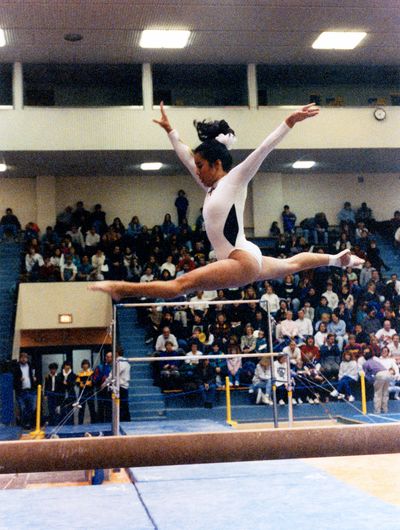
Leung, then a University of Michigan student, performs on the beam in 1993.
Marie Claire: What did gymnastics bring to your life growing up—the positives and the downsides?
Li Li Leung: Gymnastics taught me so many life skills: grit, persistence, discipline, leadership, teamwork. It helped shape me into who I am today, and I believe I’m a better person for having done the sport. In terms of the downside, it is a very challenging sport. Obviously, you’re very young when you start, and I was very lucky to have a very positive coach who stressed toughness, not necessarily punishment. But there were times when I probably did things I shouldn’t have, like competing through injuries. The sport doesn’t allow you to necessarily have a voice; that’s something I really want to help change moving forward.
MC: What do you mean when you say you didn’t have a voice?
LL: When you enter into gymnastics at such a young age, you’re being taught to follow the direction of your coach, and you don’t question what the coach is telling you. You think what your coach says is essentially gospel. So you are basically growing up in an environment where you are being told what to do, not necessarily told how to think.
MC: Is that why you call yourself a “recovering gymnast”?
Stay In The Know
Get exclusive access to fashion and beauty trends, hot-off-the-press celebrity news, and more.
LL: Yeah, when I was reading the Ropes & Gray report [the 233-page report on the factors underlying Nassar's abuse of athletes by Boston-based law firm Ropes & Gray, which followed a 10-month independent investigation], parts of it felt like I was reading my memoir in terms of having sacrificed my childhood. I didn’t have a normal childhood or high school life. I didn’t go to senior prom. The summer after my freshman year of high school, my family moved about 40 minutes away so my sister and I could be close enough to the gym to train twice a day. We made a lot of sacrifices—not only myself, but as a family—and looking back on it, I’m not sure those things made me a better gymnast. We want to help gymnasts make the right decisions, and at that point in time, I didn’t know how to make the right decisions. When I was competing through injuries, that probably wasn’t the right thing to do. We want to get to the point where gymnasts can make these educated decisions.
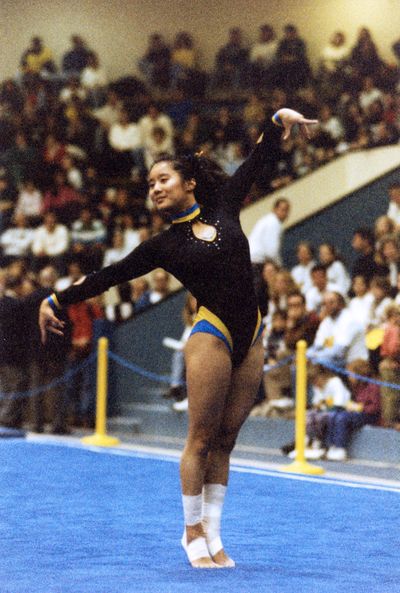
'Leung, competing for Michigan, performs a floor routine in 1994.
MC: You’ve said you “actively sought out” your new job. Why?
LL: I was watching everything happen from afar, and I kept hoping and willing that it would get better, and it didn’t. When my predecessor resigned [Mary Bono stepped down four days in after her association with a law firm that advised USA Gymnastics on Nassar was criticized, among other controversies], I felt that I couldn’t sit back and not do anything anymore. I reached out and said, “Hey, I’m a former elite gymnast, I have some international sports-business experience, and I think I could help out.” I was basically willing to volunteer if that’s what they needed, but they said, “We’re actually looking for a CEO, and why don’t you apply?”
Gymnastics never leaves you, and I felt compelled to give back to the sport, and I also felt that I could make a positive impact. It broke my heart to see what had happened to the gymnasts, and I wanted to change it.… USA Gymnastics is one of many institutions that failed in its most important responsibility, which is protecting its athletes. Going forward, the safety and well-being of our athletes will be a priority.
MC: What have you taken away from your meetings with gymnasts and others so far?
LL: I’ve had phone calls with 50 or so members of our community—current and former gymnasts, club owners, coaches, and administrators. They’re very surprised to hear from me. They’ve said, for the most part, that this is the first time they’ve had proactive outreach from someone in my position. I believe that open dialogue is crucial to the success of USA Gymnastics and vow to always have open dialogue with the community.
MC: Have you spoken with any Nassar survivors?
LL: I have had some communication with them, and many have expressed hope in my appointment. I applaud the gymnasts who have come forward to speak up because I understand that it took an immense amount of courage. I want them to know that we care about them and that we are doing everything we can to come to a fair and full resolution. I want to have transparent communication with them and bring them to the table. I also hope that they’ll be part of the solution process because I believe their perspective on things can help us create a safer environment for our gymnasts going forward.
MC: I think about how all of this is happening at a time when the sport has the greatest athlete—Simone Biles—it has ever seen and may ever see. It seems like she has a lot to carry as both a survivor herself and a champion.
LL: I think she is one of the toughest people, man or woman, that I’ve ever seen. Her ability to stay focused and her ability, as you say, to rise to the occasion have been phenomenal. I do believe that she is one of the greatest of all time in our sport. She’s an incredible person and an incredible athlete.
MC: This is about so much more than Nassar. Gymnasts have long complained about the sport’s psychologically and physically grueling aspects. How are you going to change the culture in gymnastics overall?
LL: It is a massive undertaking, and it is not a one-person job by any means. It will take the entire community to get behind [making changes] in order for this to happen. We plan to roll out new tailored educational programming that will reach every member of USA Gymnastics and help us make this cultural shift. It won’t happen overnight, but I do believe it can be done or else I wouldn’t have taken this position.
MC: The mind-set at elite levels is often that pain and sacrifice equal gold medals, so what if the changes mean the U.S. no longer wins?
LL: I am a true believer that elite sports and having fun are not in conflict with each other. I think that if our gymnasts are having fun and enjoying themselves, they will continue to achieve great things and perhaps even achieve greater things.
MC: What can you tell me about the ongoing discussions with the U.S. Olympic Committee? How will you demonstrate that the organization should be able to retain control of the sport?
LL: The decertification has been stayed due to our bankruptcy filing, so there’s no action around it right now. We continue to operate business as usual and are responsible for the day-to-day managing of our sports businesses, competitions, and initiatives. We plan to work very closely with the USOC and look forward to the conversations we’re having with them. We’re hoping that the demonstration of our new leadership and stability at USA Gymnastics will provide them with confidence in us continuing to be the national governing body of the sport.
MC: Do you feel that the organization has cleaned house and is now truly ready for the change you want to create?
LL: I came into this job with eyes wide open in the sense that I did my homework before I took this position and made sure that I was being set up to succeed. I met with every single board member to make sure that I had their support and to make sure they were committed to serving USA Gymnastics, and I was extremely pleased with every single person. They are very accomplished, very experienced, very knowledgeable individuals in the areas that we need them to be in order to succeed. On top of that, in my first couple of weeks since assuming the position, I’ve also met with nearly every single staff member at USA Gymnastics, and I am so optimistic and hopeful that we have the right people on our team. Some of them have been through thick and thin, the good and bad, and yet they are still here because they believe in the sport, they’re passionate about the work they’re doing, and they believe they can make positive change.
I think we are set up for success. We just need to stay focused and not get distracted. We need to chip away at what needs to be done, and before you know it, that mountain we need to climb won’t seem so high after all. I ask people to judge us by our actions and our response. I understand that words can seem empty at times, and I hope our actions will speak louder than words.
Correction: A previous version of this article misquoted Leung as saying "resolution process" instead of "solution process."
This appears in the June 2019 issue of Marie Claire, on newsstands May 21.
RELATED STORY
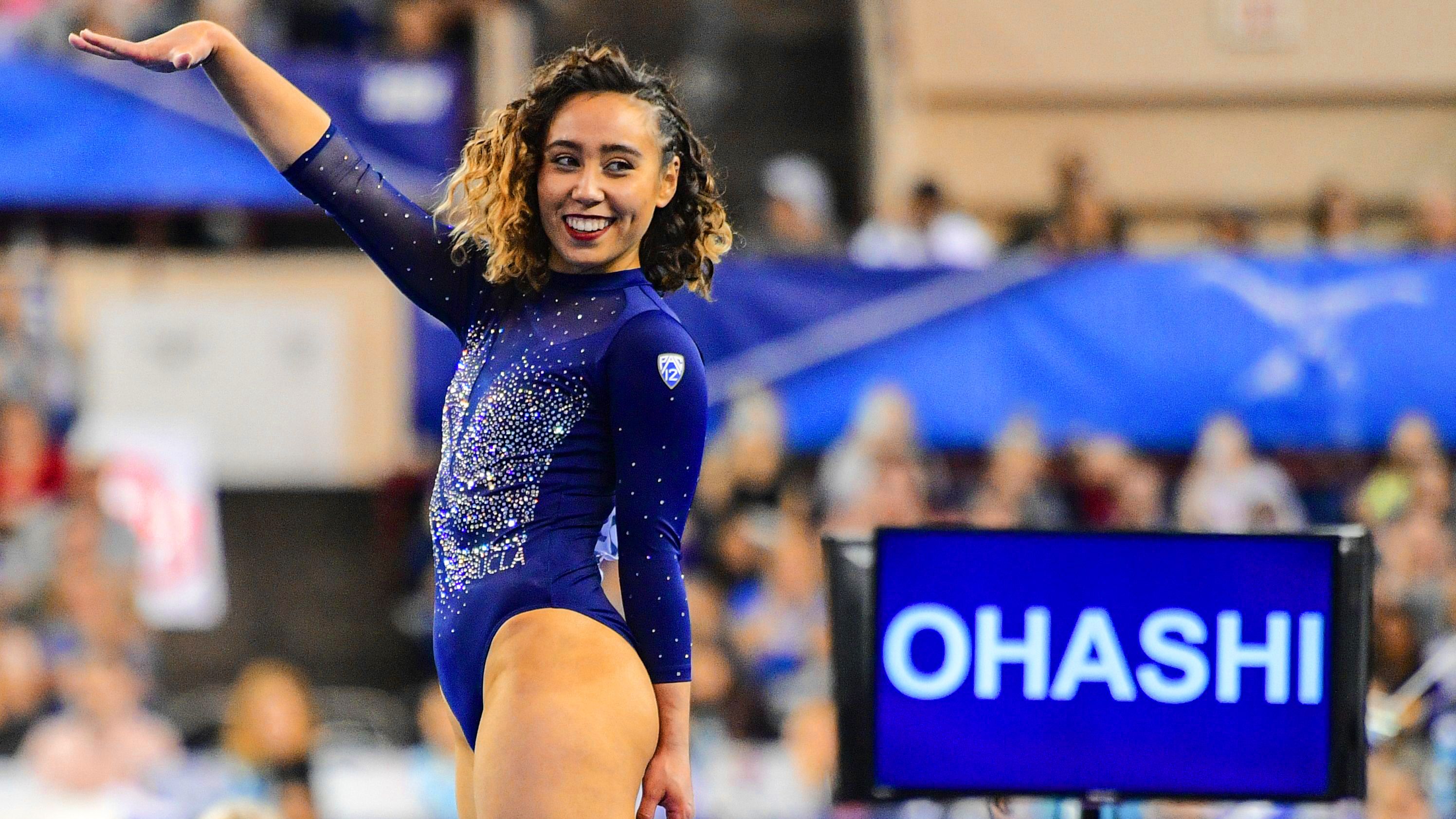
Kayla Webley Adler is the Deputy Editor of ELLE magazine. She edits cover stories, profiles, and narrative features on politics, culture, crime, and social trends. Previously, she worked as the Features Director at Marie Claire magazine and as a Staff Writer at TIME magazine.
-
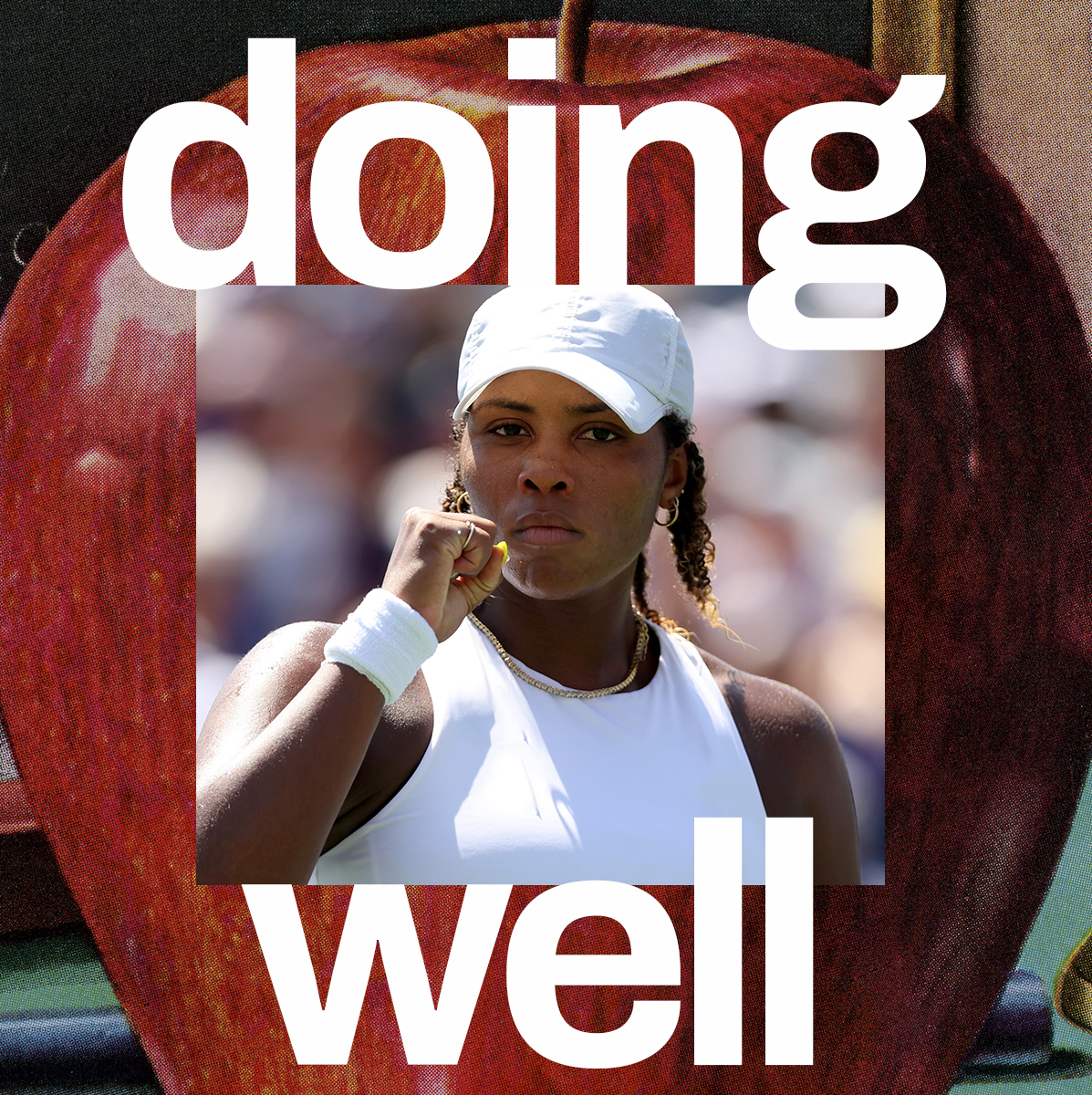 Taylor Townsend Sea Mosses Her Way to Better Wellness
Taylor Townsend Sea Mosses Her Way to Better WellnessThe tennis star serves up self-care between sets.
By Siena Gagliano
-
 What to Know About the Cast of 'Resident Playbook,' Which Is Sure to Be Your Next Medical Drama Obsession
What to Know About the Cast of 'Resident Playbook,' Which Is Sure to Be Your Next Medical Drama ObsessionThe spinoff of the hit K-drama 'Hospital Playlist' features several young actors as first-year OB-GYN residents.
By Quinci LeGardye
-
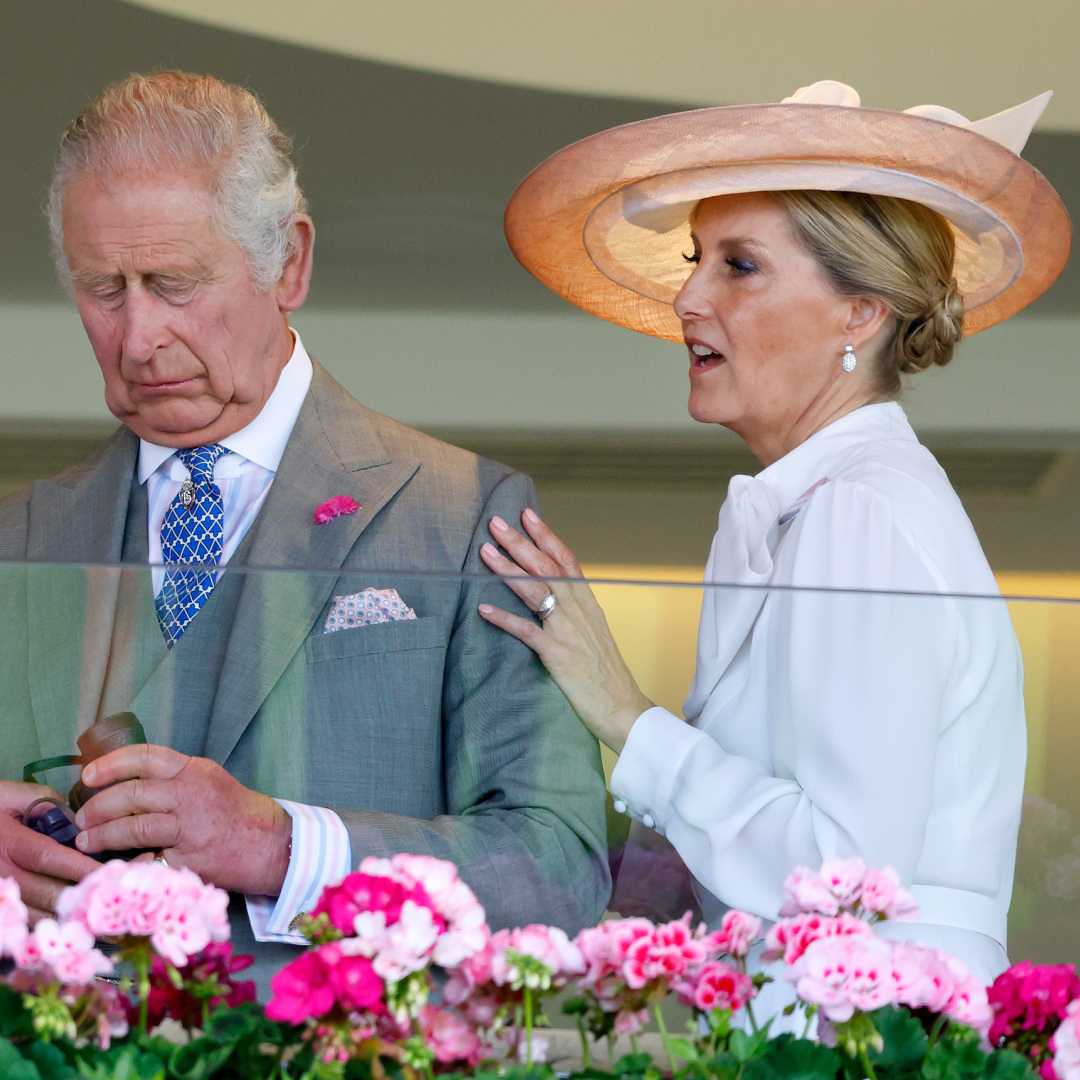 Duchess Sophie Stepped Up to Represent King Charles at Event Amid Calls for King Charles to "Slow Down"
Duchess Sophie Stepped Up to Represent King Charles at Event Amid Calls for King Charles to "Slow Down"The Duchess of Edinburgh filled in for The King at the Royal Military Academy Sandhurst.
By Kristin Contino
-
 36 Ways Women Still Aren't Equal to Men
36 Ways Women Still Aren't Equal to MenFeatures It's just one of the many ways women still aren't equal to men.
By Brooke Knappenberger
-
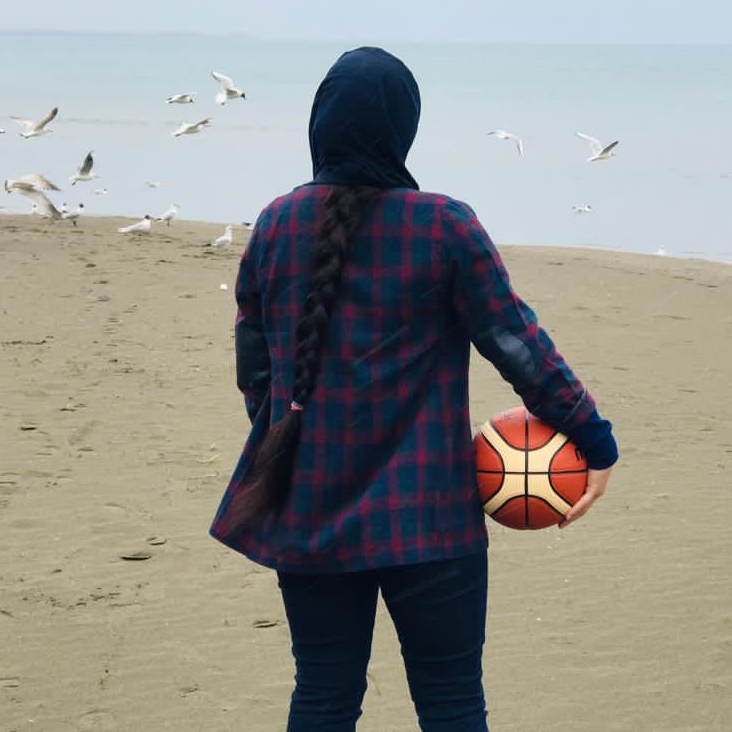 Her Love of Basketball Left Her Stateless
Her Love of Basketball Left Her StatelessOne athlete’s quest for freedom from Afghanistan, where the Taliban's restrictive and regressive policies on women's sports put her life in danger.
By Abigail Pesta
-
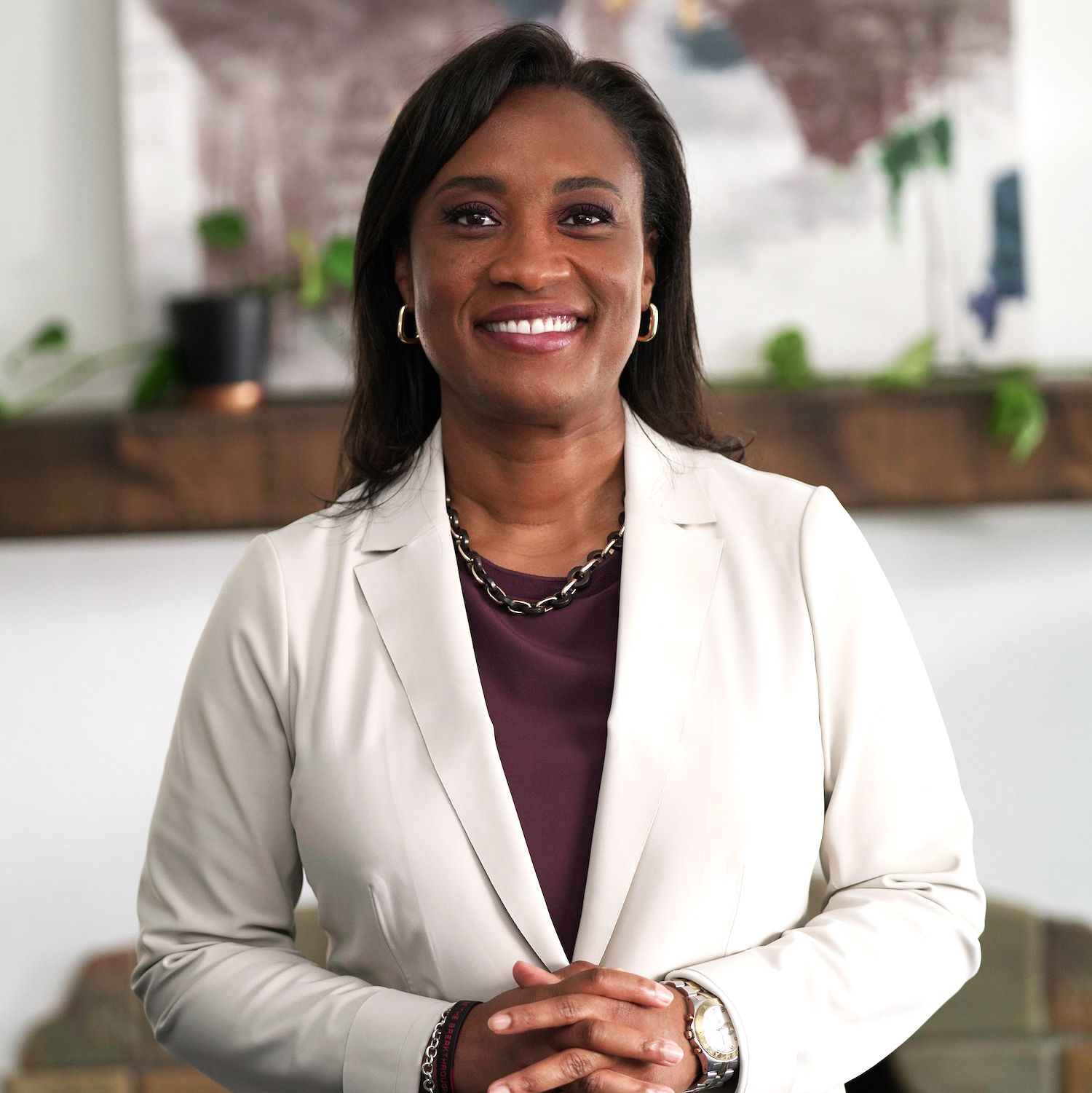 EMILY's List President Laphonza Butler Has Big Plans for the Organization
EMILY's List President Laphonza Butler Has Big Plans for the OrganizationUnder Butler's leadership, the largest resource for women in politics aims to expand Black political power and become more accessible for candidates across the nation.
By Rachel Epstein
-
 Want to Fight for Abortion Rights in Texas? Raise Your Voice to State Legislators
Want to Fight for Abortion Rights in Texas? Raise Your Voice to State LegislatorsEmily Cain, executive director of EMILY's List and and former Minority Leader in Maine, says that to stop the assault on reproductive rights, we need to start demanding more from our state legislatures.
By Emily Cain
-
 Your Abortion Questions, Answered
Your Abortion Questions, AnsweredHere, MC debunks common abortion myths you may be increasingly hearing since Texas' near-total abortion ban went into effect.
By Rachel Epstein
-
 The Future of Afghan Women and Girls Depends on What We Do Next
The Future of Afghan Women and Girls Depends on What We Do NextBetween the U.S. occupation and the Taliban, supporting resettlement for Afghan women and vulnerable individuals is long overdue.
By Rona Akbari
-
 How to Help Afghanistan Refugees and Those Who Need Aid
How to Help Afghanistan Refugees and Those Who Need AidHow To With the situation rapidly evolving, organizations are desperate for help.
By Katherine J. Igoe
-
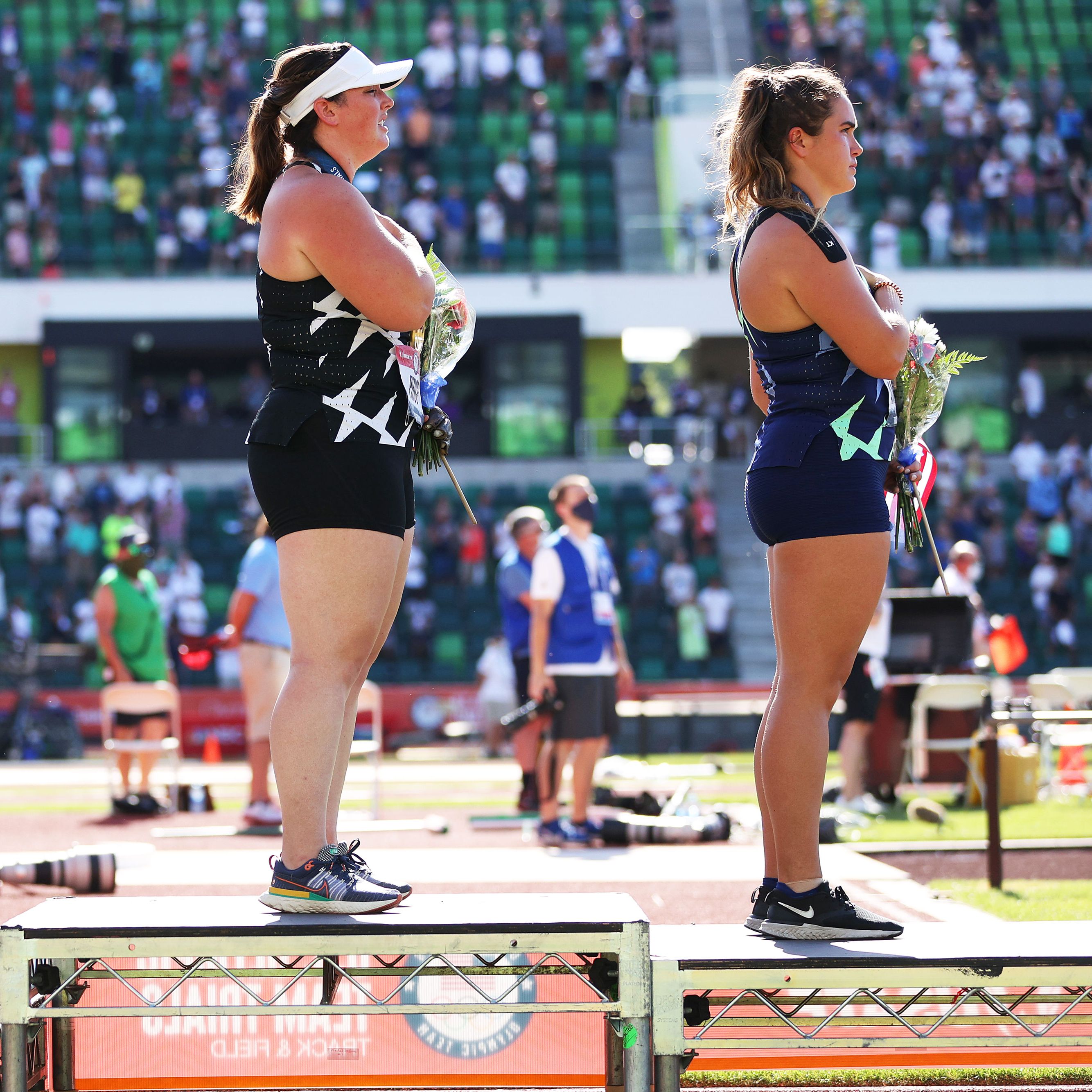 Who Is Gwen Berry, the Athlete, Activist, and Olympian?
Who Is Gwen Berry, the Athlete, Activist, and Olympian?Features "I’m extremely American because I’ll fight for people here, because we’ve endured it here..."
By Megan DiTrolio